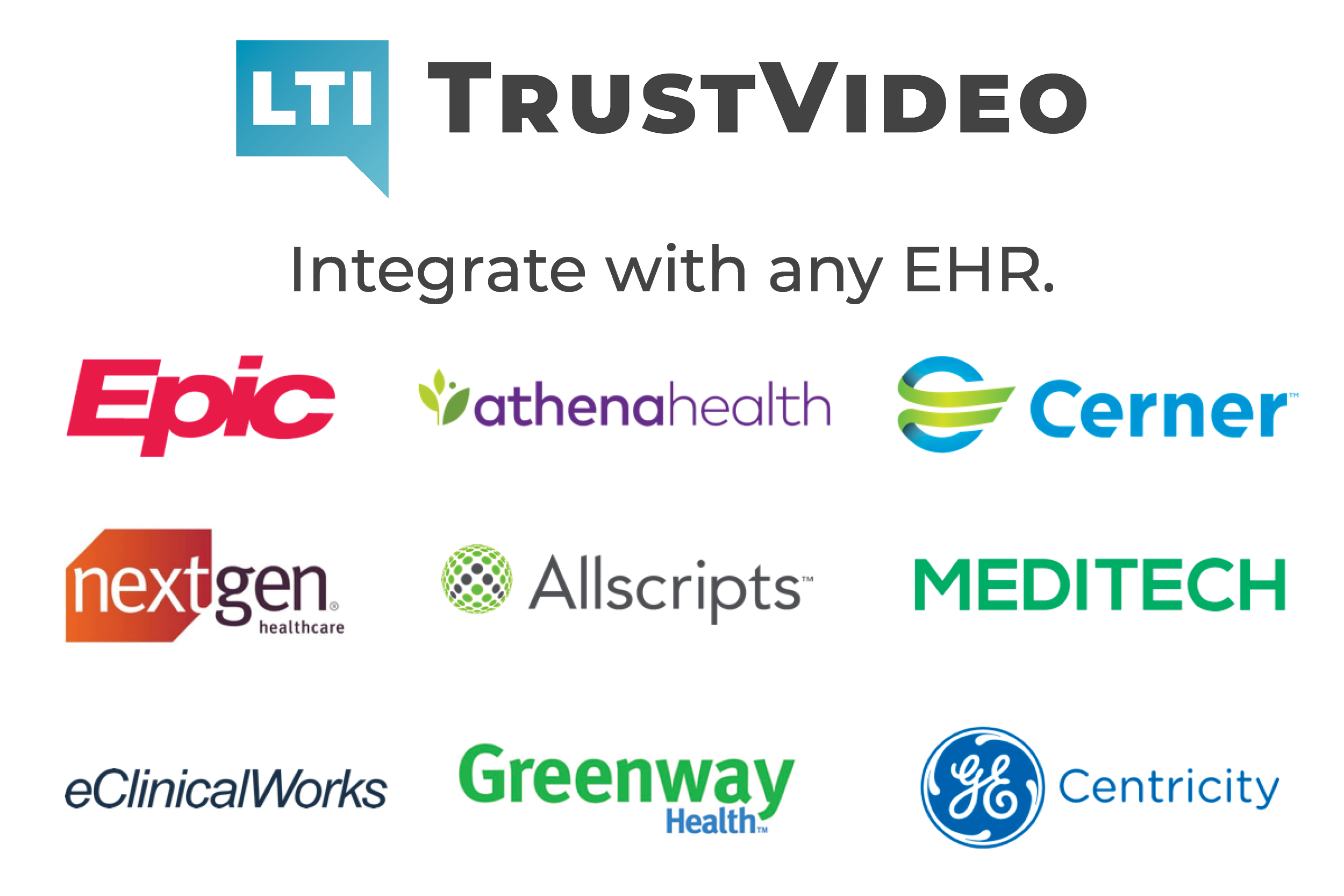Why your virtual care platform should integrate with EHR systems
Posted: May 26, 2023

Integrating virtual care with Electronic Health Records (EHR) offers several important benefits to healthcare systems from automating clinical workflows to patient safety and continuity of care. Our TrustVideo platform seamlessly integrates with EHR vendors and was developed in a way that makes the implementation process efficient.
Here's why integrating your virtual care with EHR and EMRs is crucial:
Seamless Patient Data Access
By integrating your virtual care platform with the EHR, healthcare providers can access complete and up-to-date patient information in real-time. This access allows them to make well-informed decisions, provide accurate diagnoses, and offer appropriate treatment plans during virtual consultations. It eliminates the need for manual data entry, reducing the risk of errors and ensuring a comprehensive understanding of the patient's medical history.
Continuity of Care
Integration between virtual care and EHR enables better continuity of care. Physicians can review past medical records, lab results, imaging reports, and medication histories during virtual visits, which helps them understand the patient's healthcare journey. This information supports more accurate diagnoses, facilitates informed discussions, and enables appropriate treatment decisions, even in a remote setting.
Efficient Care Coordination
Virtual care integrated with EHR improves care coordination among healthcare providers. It allows for secure sharing of patient information, test results, and treatment plans between primary care physicians, specialists, and other healthcare professionals involved in the patient's care. This streamlined communication enhances collaboration and ensures that everyone involved has access to the most recent patient data.
Enhanced Patient Safety
Integrating virtual care with EHR helps improve patient safety by reducing the potential for medical errors. With access to complete patient records, healthcare providers can verify medication allergies, review existing prescriptions, and ensure that new treatments or prescriptions are appropriate and safe. This integration also supports accurate documentation of virtual care encounters, ensuring a comprehensive and up-to-date medical record.
Improved Efficiency and Productivity
By integrating virtual care platforms with EHR, healthcare systems can enhance efficiency and productivity. Access to patient data and even insurance information within the virtual care environment eliminates the need to switch between multiple systems or manually search for information. This saves time, streamlines workflows, and allows healthcare providers to focus more on patient care rather than administrative tasks.
Data Analysis and Research
EHR integration with virtual care enables healthcare systems to gather valuable data for analysis and research. Aggregated and de-identified patient data can be used to identify trends, outcomes, and treatment effectiveness, leading to the improvement of healthcare services, protocols, and population health management strategies.
Overall, integrating virtual care with EHR systems strengthens healthcare systems by facilitating better patient care, seamless information exchange, improved coordination among healthcare providers, and enhanced efficiency and safety.